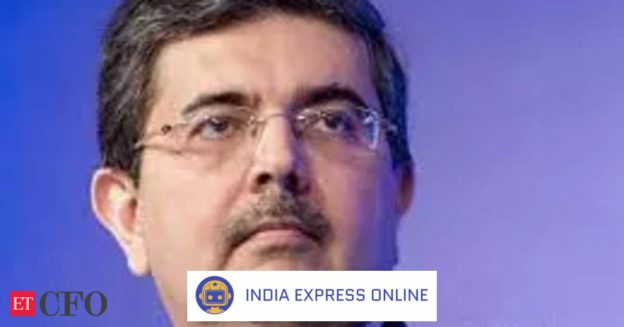“My biggest lesson as a banker and lender is, if you don’t understand something, don’t lend. If the group is complex and you can’t understand the structures, don’t go on the basis of what rating agencies say and also on the basis of what auditors say. There are huge complexities in many groups,” said Uday Kotak who took over as non executuive chairman of the crisis-hit IL&FS and MD & CEO of Kotak Mahindra Bank.
Kotak, who was appointed by the Ministry of Corporate Affairs at IL&FS immediately after the crisis in October 2018, will complete his term next week April 3. While IL&FS has settled most of the debt, Kotak shared his experience of being at the helm during the resolution process.
Solving the IL&FS crisis
IL&FS was the biggest financial crisis involving approximately Rs 91,000 crore.
Kotak said, that when we took over the group we were told there were 160 companies but we found the total companies involved were 386 and the biggest question was how to handle the complex animal.
“We appointed the best investment bankers. But they came back and said nobody won’t touch this in its current shape and form,” he said.
First we had to assess the situation of 346 companies and kept the assets as a ‘going concern’. Going concern is a term used in audit and finance where the disputed company is allowed to operate indefinitely till it reaches a conclusion.
“We had two board meetings every month. The question was how will we handle different pieces with two other important objectives. 1. Keeping the ‘going concern’ on. 2. How do we get fair recovery of money for creditors and how do we ensure the fair distribution?”
Kotak also pointed out that when it comes to recovery the lenders have their own strategy.
“I know in my different avatar, that creditors love to fight. Creditors love to fight about their secured and unsecured status. They also try to get as much as from the suffering body. and here we were wanting to do what was fair,” he said.
The biggest challenge was the resolution process.
“Because the concept of group resolution was absent, it is absent even today,” the veteran banker said.
“We have seen many other conglomerates going for resolution and many of them had a single-digit recovery as a total percentage of the debt. We are familiar with those names. We were trying to find out how to solve this.”
What was the issue?
Kotak explained the IL&FS model and mentioned it was like a vista of finance for him.
“IL&FS was a five-year structure. and the core model of the previous management was that operating as a Special Purpose Vehicle (SPV) would be the project. The borrowing would be taken from banks and others against the security of the projects and the cashflows. And there would be additional project funding for whatever reason, genuine or otherwise, where money will be poured in the whole co-structures. And the strange aspect of finance I am still grappling with is, because it is new vista of finance that I learnt over the last 3.5 years, was operating SPVs, which is where the real assets and cash flow were, were rated by rating agencies much lower but the holding companies which were pumping unsecured (subordinated) money in these entities were AAA.”
To handle the complex structure, we came up with the resolution framework which was approved by NCLAT he added.
Kotak on PSU banks
PSU banks have taken a major hit in the resolution process in many large cases. But in the IL&FS case their underwriting credit strategy was very appropriate, says Kotak.
He said, “PSU banks did well, because they saw the cash flow and the asset.”
Kotak had earlier reiterated too that In the IL&FS PSU banks had a decent recovery than even many other assets.
Kotak on policymakers
The important lesson that Kotak said he learnt is, “When we are in crisis it’s extremely important that policymakers and governments should act fast. In this case, the credit goes to the government for moving fast. We have to acknowledge that speed is important when we are in crisis rather than wrangling which often happens between different policymakers.”
He also said that the “judicial process should move faster and sovereign governments, specifically state governments, should respect contracts.”
He added that there is a need to improve the whole group resolution process. IL&FS is a case study for the whole ecosystem to build resolutions for areas – which are no man’s land, he said
Kotak also remembered that the most important decision was to sell the iconic building of IL&FS to Brookfield for Rs 1,080 crore. He felt sad about it but believed that it was a decision in the fitness of things.
https://cfo.economictimes.indiatimes.com/news/what-the-ilfs-financial-crisis-taught-veteran-banker-uday-kotak/90531586
https://indiaexpressonline.in/what-the-ilfs-financial-crisis-taught-veteran-banker-uday-kotak-cfo-news-etcfo/





